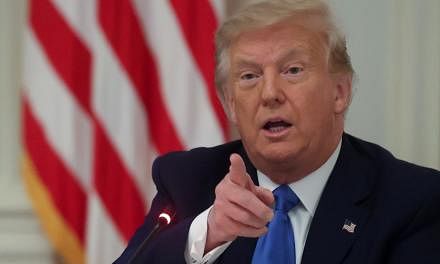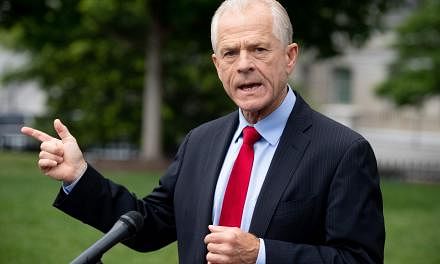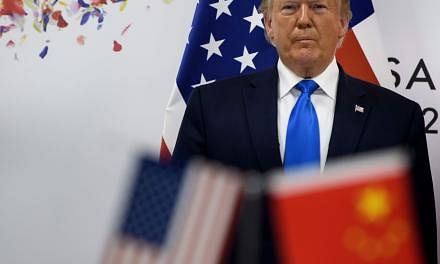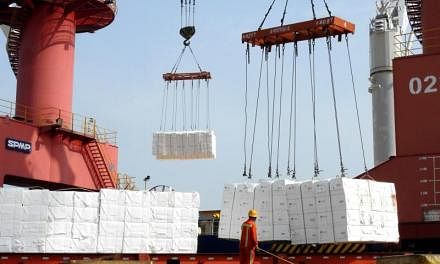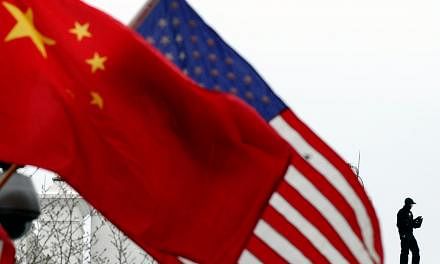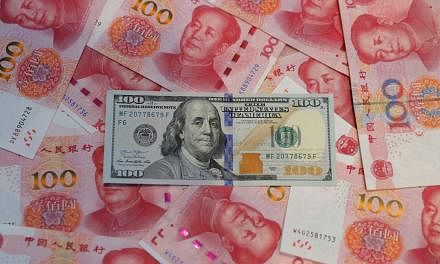WASHINGTON (XINHUA, AFP) - The just-signed China-United States phase one economic and trade agreement bears both economic and political significance, Chinese Vice-Premier Liu He said.
The deal has "considerably addressed the concerns" of both sides, Mr Liu said, as the world's two biggest economies marked a truce in the lingering trade impasse.
The deal has injected positive energy into the stability and development of the world economy, he added.
Mr Liu, also a member of the Politburo of the Communist Party of China Central Committee and chief of the Chinese side of the China-US comprehensive economic dialogue, made the remarks during a briefing with some Chinese media outlets.
Chinese state media hailed the phase one trade deal between Beijing and Washington as a "hard-fought agreement", but warned of uncertainties that could jeopardise future relations.
After nearly two years of conflict, the world's top two economic powers signed the long-awaited trade truce on Wednesday at the White House.
The agreement includes pledges from China to beef up purchases of American agricultural goods and other exports for two years, and provides some protection for US technology.
China's nationalistic Global Times, a tabloid with an English-language edition, described the deal as "a hard-fought agreement (which) should be cherished by both sides".
The China Daily said that "with the signing of the deal, it is now to be hoped that the detente leads to lasting peace".
Communist Party mouthpiece The People's Daily called it "a new starting point" for US-China relations, while state broadcaster CCTV said the deal was "in the common interest" of both the US and China.
"China-US economic and trade frictions have achieved a phased 'ceasefire' and have taken a practical step towards the ultimate resolution of the problem," CCTV said in a commentary.
But state media also warned that the nation should brace itself for future clashes with the US.
"The elation was quickly tempered by suspicions that it would not take much to banjax the deal", wrote the China Daily in an editorial. It added that there was a "sobering realisation" that if the deal collapsed it would damage the next phase of the agreement and bring tensions to a head again.
The People's Daily described it as "a stormy process in which China and the US know each other's determination, strength and energy".
The Global Times questioned the resilience of the deal, asking: "Can a preliminary trade agreement, reached during a period when China-US strategic relations are clearly declining, really work?"
"Will it be replaced by new conflicts or further progress as negotiations continue?"
It warned: "Huge uncertainty remains".
Under the text of the deal, which US President Donald Trump signed with China's Vice Premier Liu He, both sides agree that they can formally complain to each other if either feels the other side is not holding to its end of the bargain.
China has agreed to buy US$200 billion (S$269 billion) more in US goods over two years than it did in 2017, before the trade war began, including US$32 billion in American farm products and seafood, almost US$78 billion in manufactured goods like aircraft, machinery and steel and US$52 billion in energy goods.


